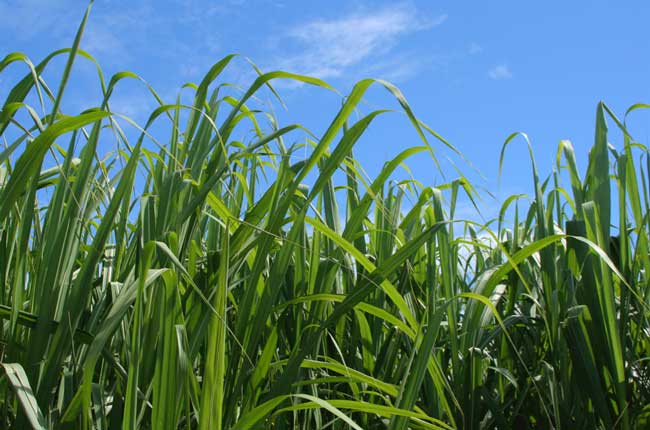A Win-Win-Win Solution for Biofuel, Climate, and Biodiversity

Sugarcane
In Brazil, the demand for alternative energy sources has led to an increase in biofuel crops. A new “News and Views” paper in Nature Climate Change, co-authored by Woods Hole Research Center scientists Marcia Macedo and Eric Davidson, reviews new research conducted by Brazilian colleagues demonstrating the high carbon costs of converting intact Brazilian savanna compared to the carbon gains obtained from converting underutilized pastureland for biofuel crops.
Compared to corn, soy and palm oil, the rapid growth rate of sugar cane has put it at the forefront of biofuel crops. Brazil’s national commitment to reduce greenhouse gas emissions, along with rising gasoline prices, has led to the world’s largest fleet of flex-fuel vehicles, fueled by the over 36 million tonnes of sugar cane currently grown in the country. This number is expected to climb with new technologies and greater global demand. The challenge for Brazil lies in identifying optimal lands for expanding sugarcane while still meeting demands for food crops and conserving native forests and savannas.
The Cerrado, Brazil’s 2 million km2 savanna region, is the most biologically rich savanna on Earth. Unlike the Amazon, which remains over 80% forested, over half of the Cerrado has been cleared for agriculture, including sugar cane biofuel crops. As Drs. Macedo and Davidson note, the new research shows that it would take 17 years of sugar cane production to make up for the carbon losses caused by clearing the Cerrado. In contrast, converting already cleared pastures to sugar cane production provides a nearly immediate carbon payback when ethanol is burned in lieu of gas and oil.
With over 2.5 million square kilometers of existing cleared lands in Brazil, much of which is degraded pasture lands, there is already a large potential area for biofuel crop expansion. For Dr. Macedo, “Because Brazil has a large supply of under-used, low productivity pastures that are suitable for sugar cane, there is no reason to clear additional native Cerrado for sugar cane production.”
Dr. Davidson adds “A study commissioned by the World Bank shows that there is likely room for an all-of-the-above future land-use strategy, which includes using degraded pastures for a combination of reforestation, expansion of biofuel and food crops, and intensification of cattle production.” In agreement with their Brazilian colleagues, Macedo and Davidson conclude that Brazil can meet today’s demands for food, fiber, feed and fuel with no further biodiversity loss, minimal carbon costs, and even a carbon gain, which would help slow climate change.
Contact: Eunice Youmans, Director of External Affairs 508-444-1509
Email Eunice Youmans
Media Contact
All latest news from the category: Ecology, The Environment and Conservation
This complex theme deals primarily with interactions between organisms and the environmental factors that impact them, but to a greater extent between individual inanimate environmental factors.
innovations-report offers informative reports and articles on topics such as climate protection, landscape conservation, ecological systems, wildlife and nature parks and ecosystem efficiency and balance.
Newest articles

Security vulnerability in browser interface
… allows computer access via graphics card. Researchers at Graz University of Technology were successful with three different side-channel attacks on graphics cards via the WebGPU browser interface. The attacks…

A closer look at mechanochemistry
Ferdi Schüth and his team at the Max Planck Institut für Kohlenforschung in Mülheim/Germany have been studying the phenomena of mechanochemistry for several years. But what actually happens at the…

Severe Vulnerabilities Discovered in Software to Protect Internet Routing
A research team from the National Research Center for Applied Cybersecurity ATHENE led by Prof. Dr. Haya Schulmann has uncovered 18 vulnerabilities in crucial software components of Resource Public Key…





















